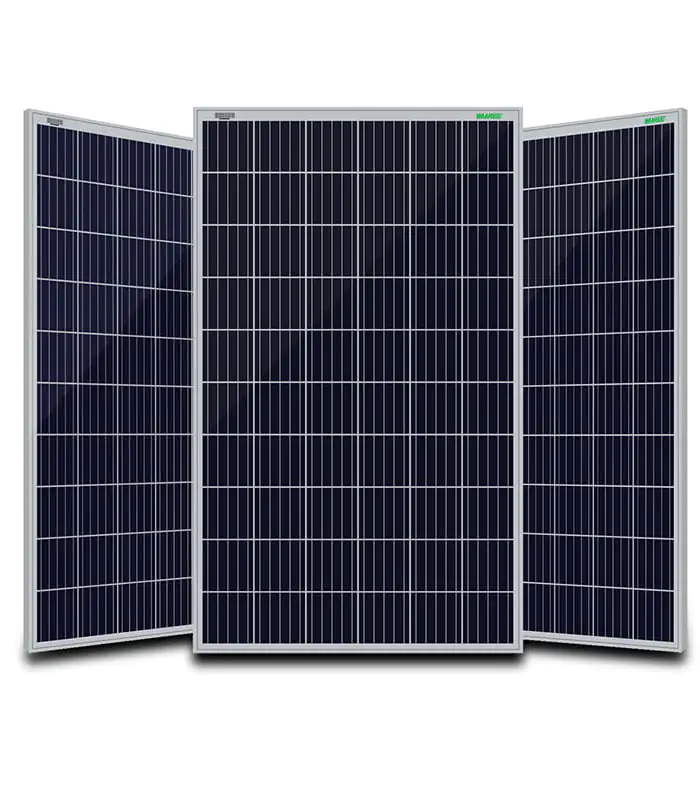Solar Panels Price Technology & A Complete Guide
Solar panels use the photovoltaic effect to turn sunlight into useful electricity. Solar panels typically comprise several solar cells of semiconductor materials such as silicon. When sunlight strikes these cells, it excites the electrons in the material, causing an electric current to flow.
The Advantages of Solar Panels
Solar panels provide various benefits that make them an appealing option for renewable energy generation:
-
Renewable Energy Source: Solar power relies on the sun's limitless energy, making it a renewable resource. Solar panels can produce electricity as long as the sun continues to shine.
-
Environmentally Friendly: Solar panels produce clean energy without harmful emissions or pollutants, reducing our carbon footprint and combating climate change. They contribute to cleaner air, water and a healthier environment for future generations.
-
Energy Independence: By installing solar panels, individuals and businesses can generate their electricity, reducing reliance on traditional energy sources. This provides energy independence and protection against fluctuating energy prices.
-
Financial Savings: Solar panels can significantly lower electricity bills over their lifespan. Once installed, they harness free and abundant sunlight, reducing or eliminating the need to purchase electricity from the grid.
-
Long-Term Investment: Solar panels have a long lifespan, typically 25 years or more. This makes them a sound long-term investment, providing energy savings and potential financial returns.
Solar Panel Price List 2023
| Tata Solar Panel Model | Selling Price | Price Per Watt |
|
Rs. 2,200 |
Rs. 44 |
|
|
Rs. 4,400 |
Rs. 44 |
|
|
Rs. 6,600 |
Rs. 44 |
|
|
160W Solar Panel |
Rs. 6,720 |
Rs. 42 |
|
Rs. 7,800 |
Rs. 39 |
|
|
Rs. 7,250 |
Rs. 29 |
|
|
265W Solar Panel |
Rs. 7,685 |
Rs. 29 |
|
288W Solar Panel |
Rs. 8,352 |
Rs. 29 |
|
Rs. 8,700 |
Rs. 29 |
|
|
315W Solar Panel |
Rs. 9,135 |
Rs. 29 |
|
330W Solar Panel |
Rs. 9,240 |
Rs. 28 |
Solar Panel Technology: Innovation and Efficiency
Solar panel technological advancements have substantially enhanced their efficiency and performance. Here are a few noteworthy technological features:
-
Monocrystalline, Polycrystalline, and Thin-Film: Solar panels are available in various types, including monocrystalline, polycrystalline, and thin-film. Monocrystalline panels have higher efficiency due to their single-crystal structure, while polycrystalline panels are cost-effective and widely used. Thin-film panels are flexible and can be integrated into different applications.
-
Anti-Reflective Coating: Solar panels are coated with an anti-reflective layer to maximise light absorption. This coating reduces light reflection, allowing more sunlight to reach the solar cells and improving overall efficiency.
-
Bifacial Panels: Bifacial solar panels can generate electricity from both sides, capturing sunlight reflected from the ground or surrounding surfaces. This enhances energy production and efficiency.
-
Solar Tracking Systems: Some solar installations utilize tracking systems that follow the sun's movement throughout the day, optimizing the panel's exposure to sunlight. This increases energy generation and efficiency.
Applications of Solar Panels
Solar panels have numerous applications, Ranging from Residential Rooftops to large-scale solar farms. Let's look at some typical applications.
Residential Sector
Homeowners are becoming more interested in solar panels. Installing solar panels on residential rooftops enables residents to create clean energy, lower their electricity bills, and contribute to a more sustainable future. Incentives like net metering, which allows excess electricity to be fed back into the grid, boost the financial benefits for homes even further.

Commercial Sector
Solar panels allow businesses to cut operational expenses while demonstrating corporate social responsibility. Solar panels may power a variety of commercial establishments, from office buildings to retail stores, resulting in long-term energy savings and environmental benefits.
Industrial Sector
Solar panel installations can considerably assist the industrial sector. Solar farms and large-scale photovoltaic systems can provide enough electricity to operate factories, warehouses, and other industrial operations. This reduces dependency on traditional energy sources while also lowering operating costs.
